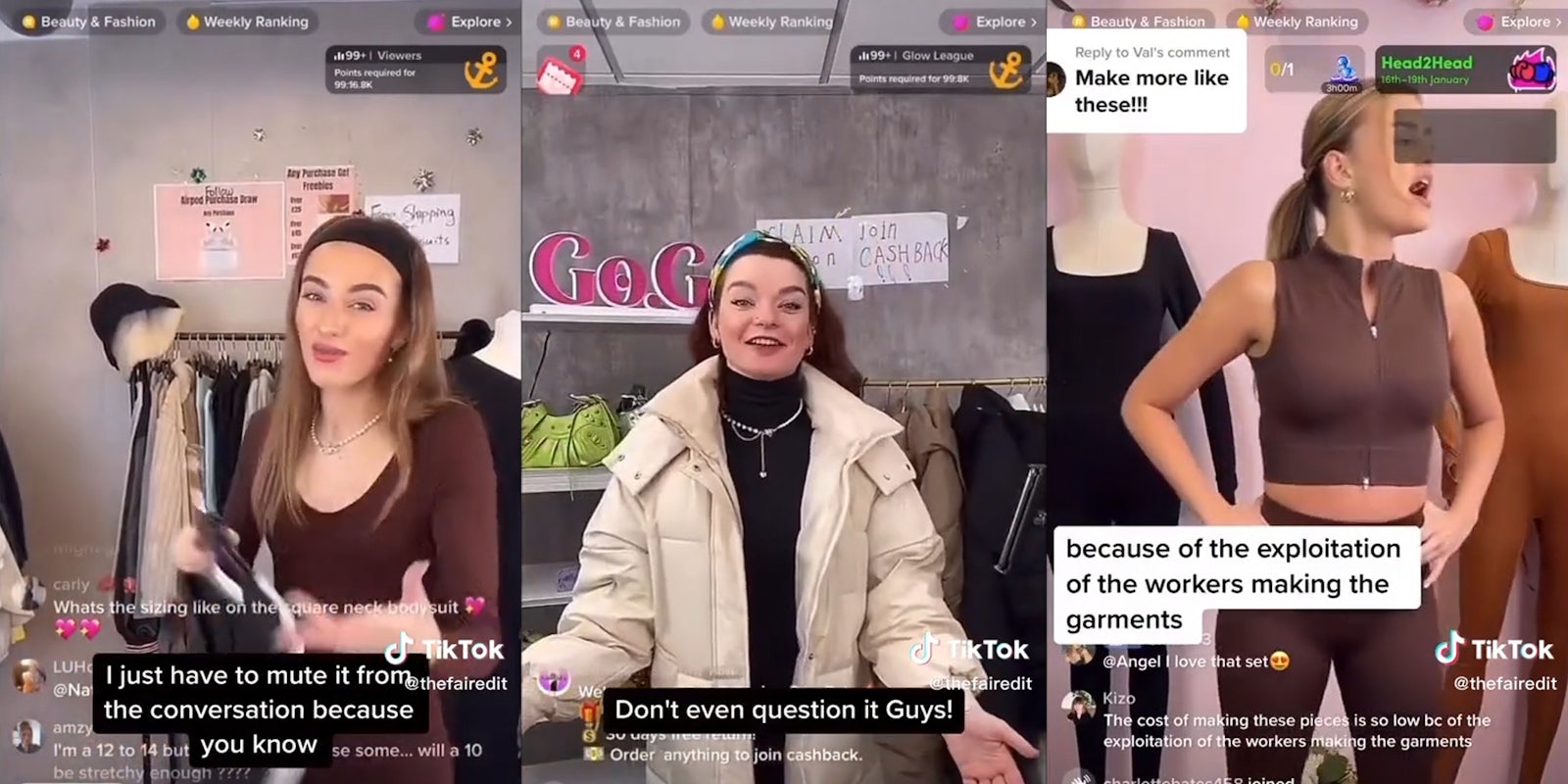Problematic on TikTok is a weekly column that unpacks the troubling trends that are emerging on the popular platform and runs on Tuesdays in the Daily Dot’s web_crawlr newsletter. If you want to get this column a day before we publish it, subscribe to web_crawlr, where you’ll get the daily scoop of internet culture delivered straight to your inbox.
Analysis
“What do you think about the impact of these clothes on the environment?” a woman says, reading a comment she received in a TikTok live from clothing brand Nowrain (@nr_girly_uk). “I have to stay neutral on that because this is my job, so.”
The clip comes from a compilation video from @thefairedit, a TikTok account that posts about sustainability and fashion. And the Nowrain brand rep isn’t alone in dodging questions about the ethics of clothing brands’ employment practices, labor practices, and sustainability: @thefairedit’s video shows reps from LaLa Fit UK, Pupagal, Go.G.G.Fashion, and Glamify avoiding probing inquiries made via comments on TikTok live advertisements from the brands.
The aforementioned brands are “fast fashion,” meaning they produce cheap clothing items to meet market and trend demands at a rapid pace. And this process comes with a huge cost: fast fashion brands have been accused of overworking and underpaying their employees, possibly in unsafe environments.
Still, many fast fashion brands use TikTok to advertise their products either via their own accounts or through partnerships with content creators—much to the dismay of TikTokers who have sustainability in mind.
Drew Afualo, who has almost 8 million TikTok followers, faced the wrath of environmentally-conscious TikTokers in April 2022, when she partnered with fast fashion brand Shein. Though thebacklash didn’t necessarily seem to further sway public opinion about fast fashion, especially when Afualo seemed to retaliate against people who spoke out against her work with Shein.
But videos like the one from @thefairedits, alongside TikTok’s recent “de-influencing” trend, might just cause fast fashion brands to lose their footing on TikTok.
De-influencing is exactly what it sounds like. Rather than content creators influencing viewers to buy a product, content creators de-influence viewers by telling them what not to buy—and a lot of that is fast fashion.
“Y’all wanna be de-influenced, huh?” @hazel_is_online says in her video de-influencing viewers from buying fast fashion. “All fast fashion is plastic,” which the TikToker explains is a “petroleum by-product,” and concluding that anyone who is wearing polyester/plastic is “wearing oil” on their body.
Why it matters
In addition to the human rights violations fast fashion brands are accused of committing, these clothing manufacturers contribute to overconsumption, or the global consumer’s practice of buying products in excess, therefore putting a strain on the planet’s natural resources. So a simple shift away from them on TikTok could make somewhat of a difference.



